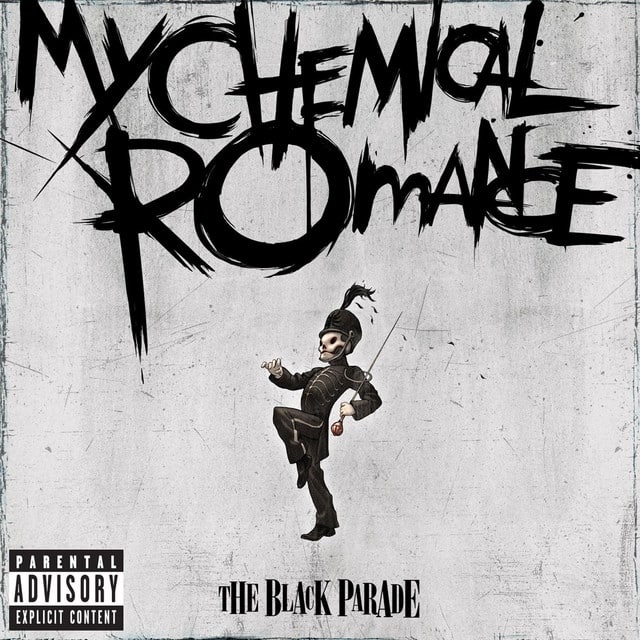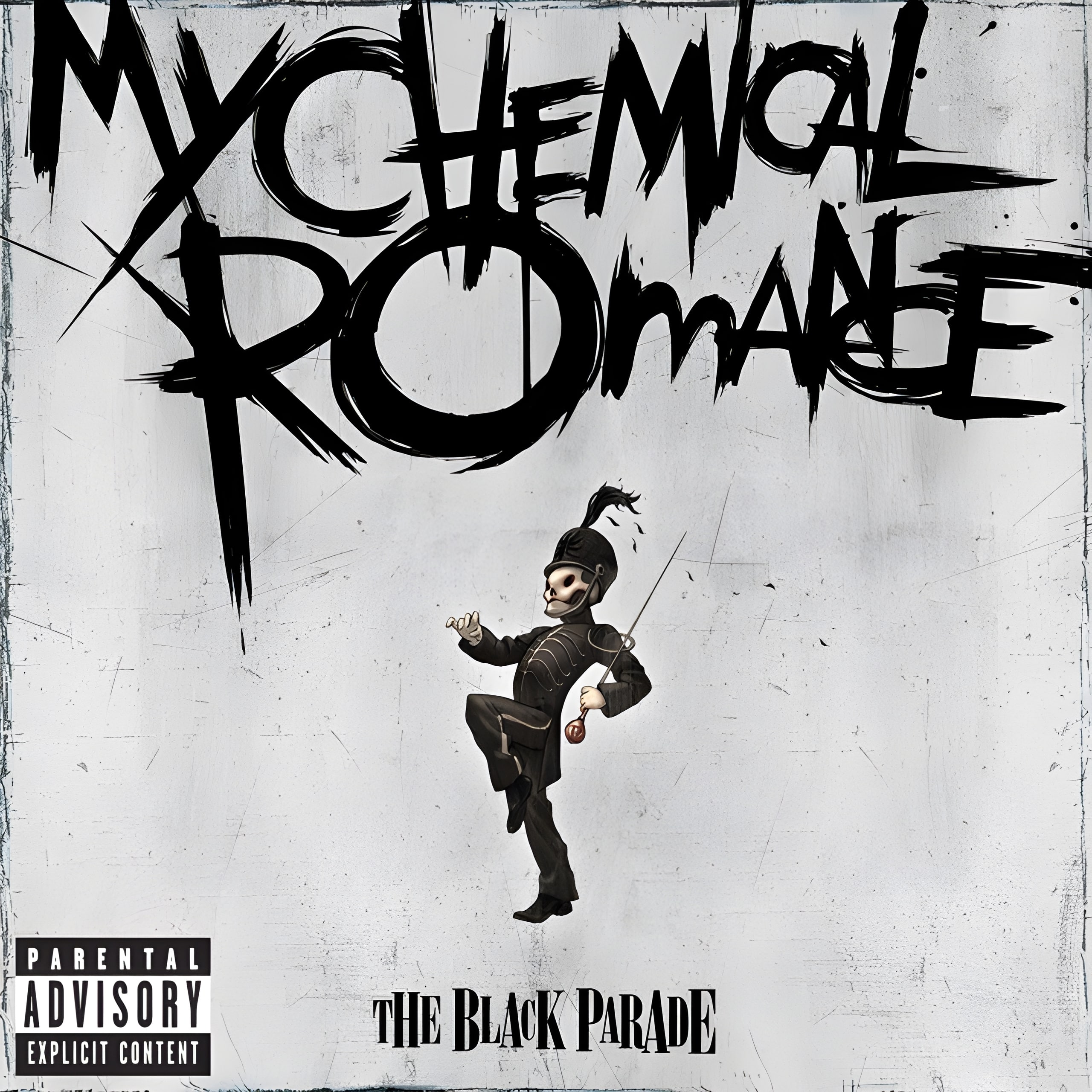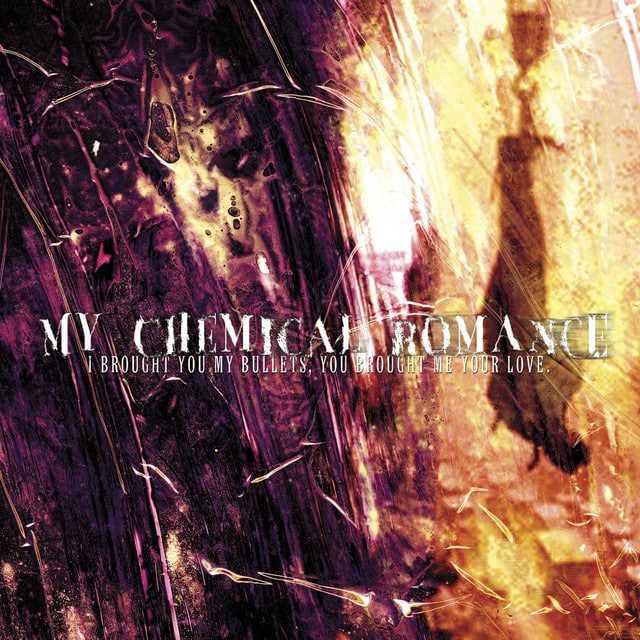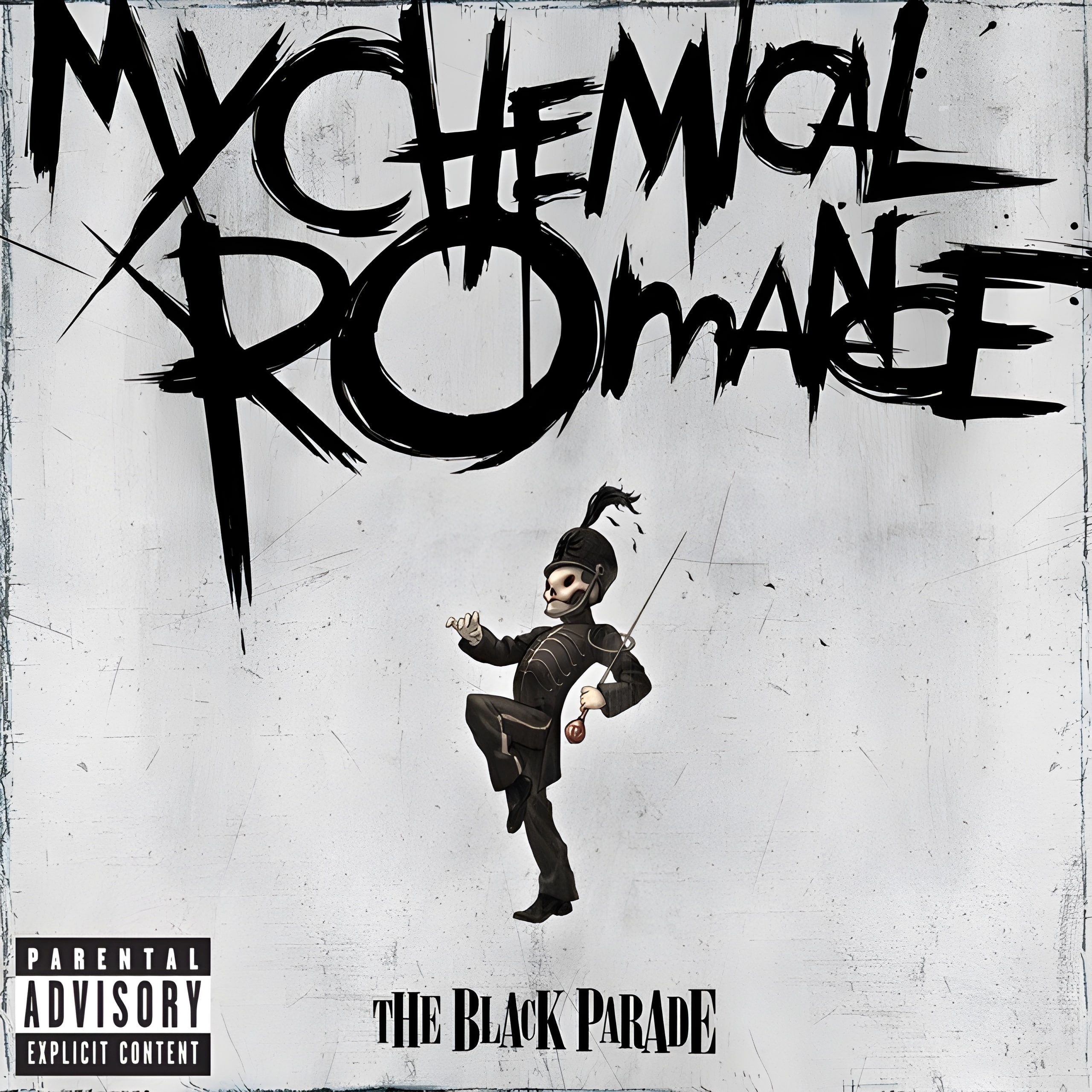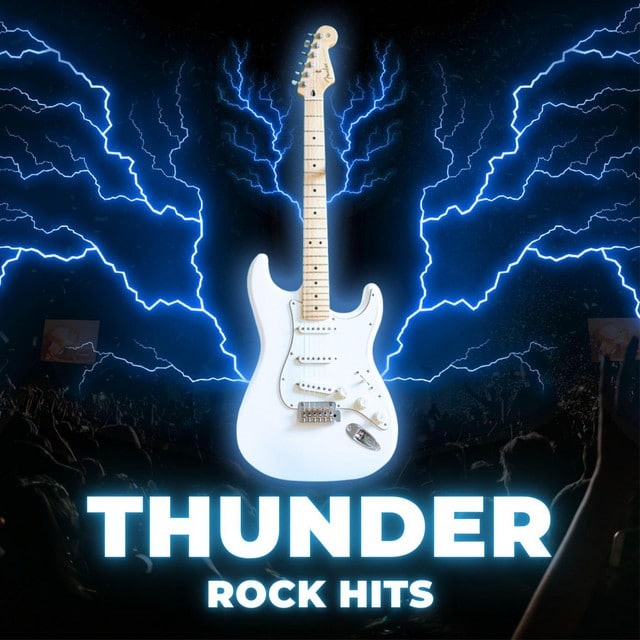Released: 2006
“Welcome to the Black Parade” by My Chemical Romance is more than just a song; it’s an anthem for the misunderstood, the misfits, and anyone who’s ever felt a little out of place in the world. At its core, this track is a rousing call to arms, invoking themes of resilience, defiance, and the unbreakable spirit of youth against the backdrop of a dark, almost operatic rock soundscape.
The song kicks off with a deeply personal memory: a young boy being taken to the city by his father to see a marching band. This isn’t just a trip down memory lane. It’s a father setting the stage for his son, challenging him to rise above the mediocrity and become a savior for “the broken, the beaten and the damned.” The father’s words, “Son, when you grow up, would you be the savior of the broken, the beaten and the damned?” underline the weight of expectation and the call to a higher purpose beyond the self. The mention of a “phantom” to lead in the summer to join “the black parade” alludes to a symbolic inheritance of duty and struggle, wrapped in the imagery of a funeral procession that’s anything but mournful—it’s a parade, a movement.
As the song progresses, it taps into the eerie feeling of being watched over by a deceased lover, hinting at the universal experience of loss and the haunting presence of those we’ve lost. “Sometimes I get the feelin’ she’s watchin’ over me. And other times I feel like I should go,” captures this duality of comfort and obligation, the pull between sticking with the familiar and venturing into the unknown. The chorus, “We’ll carry on, we’ll carry on, and though you’re dead and gone, believe me, your memory will carry on,” is a defiant declaration that even in the face of death, the spirit of the lost, their ideals, and their fight, will continue through those they’ve left behind.
The bridge of the song, with its vivid imagery of “disappointed faces of your peers” and the statement “Take a look at me, ’cause I could not care at all,” is a bold declaration of individuality and resilience. It speaks to the idea of standing firm in the face of adversity, of being true to oneself despite the pressures to conform or surrender. The repetition of “Do or die, you’ll never make me, because the world will never take my heart” is a rallying cry, a refusal to be broken or beaten down by the harsh realities of the world.
The song then moves into a reflection on identity and the role of the artist, with the lines “Just a man, I’m not a hero. Just a boy, who had to sing this song.” This is a moment of humility and recognition that behind the grandiose themes of heroes and saviors, it’s the human experience, with all its flaws and struggles, that connects us all. It’s an acknowledgment that sometimes, the most heroic act is to keep going, to keep singing, to keep carrying on in the face of everything.
In sum, “Welcome to the Black Parade” by My Chemical Romance is a masterful blend of personal narrative, collective grief, and unyielding hope. It captures the essence of what it means to fight for what you believe in, to carry on the legacies of those who’ve gone before us, and to do so with an unapologetic sense of self. It’s a song that, in its own right, has become a parade for anyone who’s ever felt beaten down, broken, or lost—reminding us that in unity, defiance, and the refusal to give in, we find our greatest strength.
